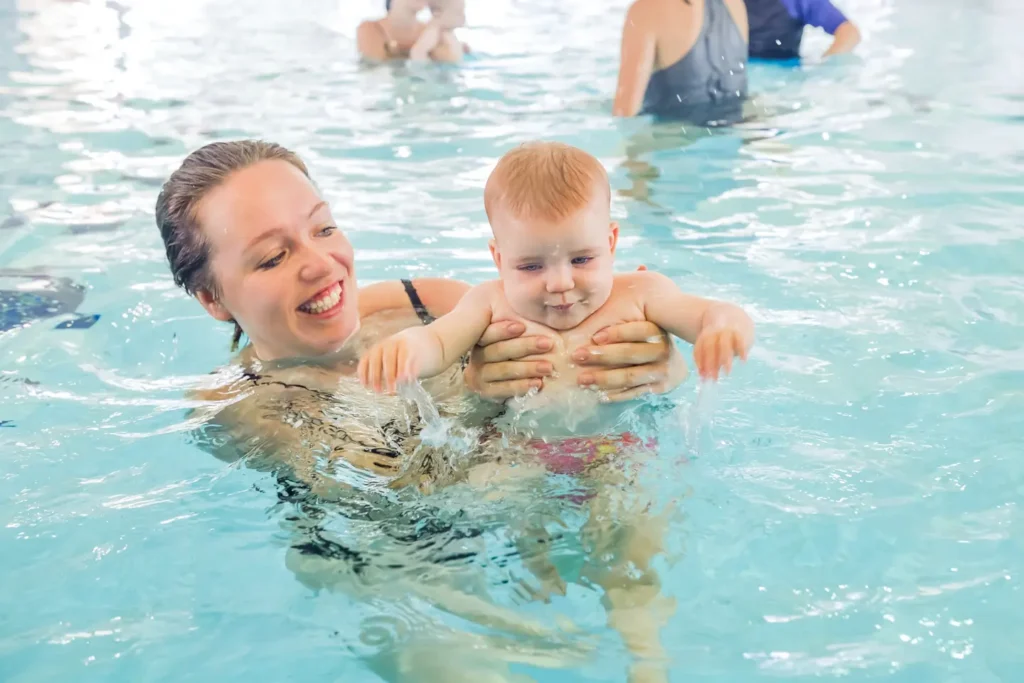Fear of water is common among toddlers, especially if they’re new to swimming or haven’t been in the water for a while. While babies are born with natural reflexes like kicking and holding their breath, these reflexes usually fade by six months. Early exposure to water helps preserve their comfort which is why we start swimming lessons from as young as 8 weeks!
But even if your child has developed a fear of swimming, there’s no need to worry—it’s completely normal. As a parent, you might feel unsure about how to help when your toddler is scared of swimming. Should you push them to try? Should you wait it out?
The key is to recognise their feelings and gently guide them toward confidence. In this blog, we’ll explore practical, expert-backed strategies to help your child overcome their fears and learn to enjoy the water.
Why Are Toddlers Afraid of Swimming?
Young children often react to new and complex environments with hesitation, as their brains are not yet fully equipped to manage sensory overload. So a fear of swimming is a common and natural response among toddlers, often rooted in the unfamiliar environment.
For toddlers, who are still learning to process the world around them, the pool can feel overwhelming and intimidating. The echoing acoustics, splashing water, and sensation of buoyancy are all new and unfamiliar to children. You might notice your child clinging to you, covering their ears, or refusing to enter the pool area altogether.
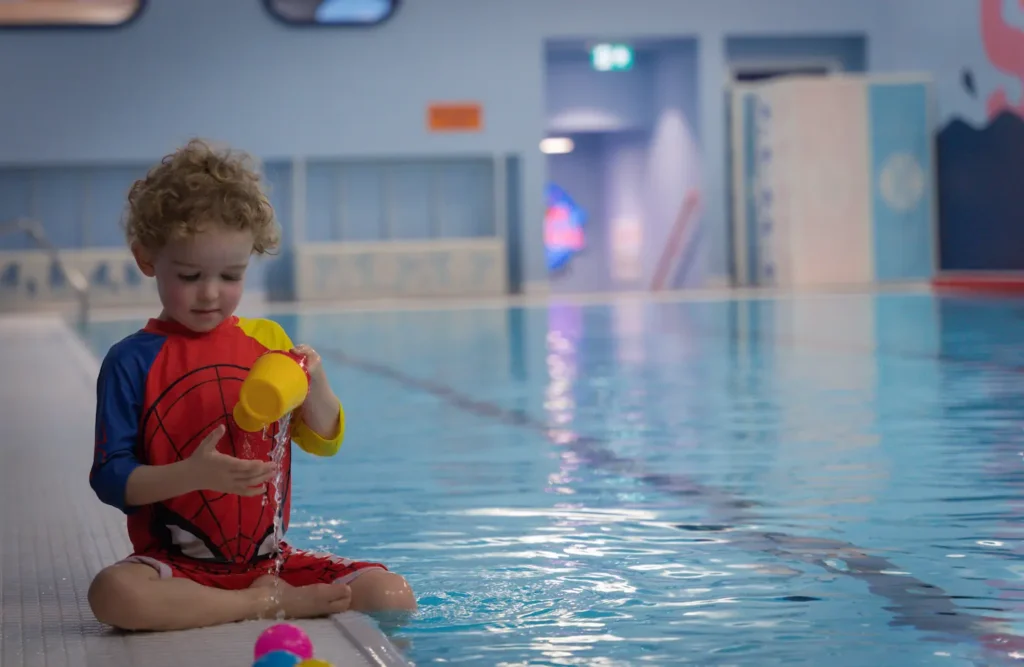
Practical Steps to Help Your Toddler Overcome Fear
1. Observe Before Diving In
Jumping straight into a swimming lesson can be daunting for a toddler. To ease this transition, start by spending time near the pool without the pressure to enter the water. Let your child watch others play, listen to the gentle sounds of splashing water, and feel the warmth of the poolside environment.
Hold their hand and point out the fun others are having in a calm, reassuring tone. Explain what they’re seeing and hearing – for example, you could say, “Look at how much fun those kids are having in the water! They’re splashing and laughing.” This kind of positive association helps toddlers begin to view the pool as a safe, enjoyable place.
Gradual exposure not only helps your child become familiar with the pool but also sets the stage for building curiosity and excitement about swimming lessons.
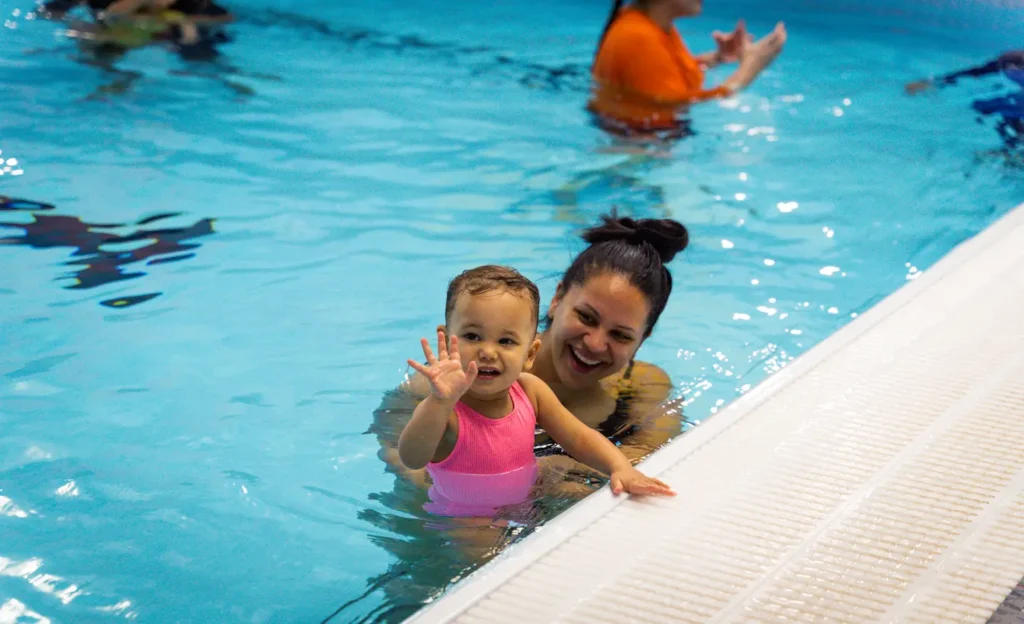
2. Practice at Home
For toddlers who are hesitant about swimming, the bathtub is the perfect starting point for introducing water play in a familiar, low-pressure environment. Start small by encouraging activities like gentle splashing, playing with floating toys, or pouring water over their hands and feet. These playful moments are essential to allow your child to explore water without fear.
Once your child is comfortable, introduce simple skills that mimic the basics of swimming lessons. For instance, practice blowing bubbles in the water or gently submerging their chin. These activities help them get used to the sensation of water on their face, a common fear among young swimmers.
Consistency is key. Make bath time a regular opportunity to practice water familiarity and confidence. The more your toddler enjoys these experiences at home, the less intimidating swimming lessons will feel.
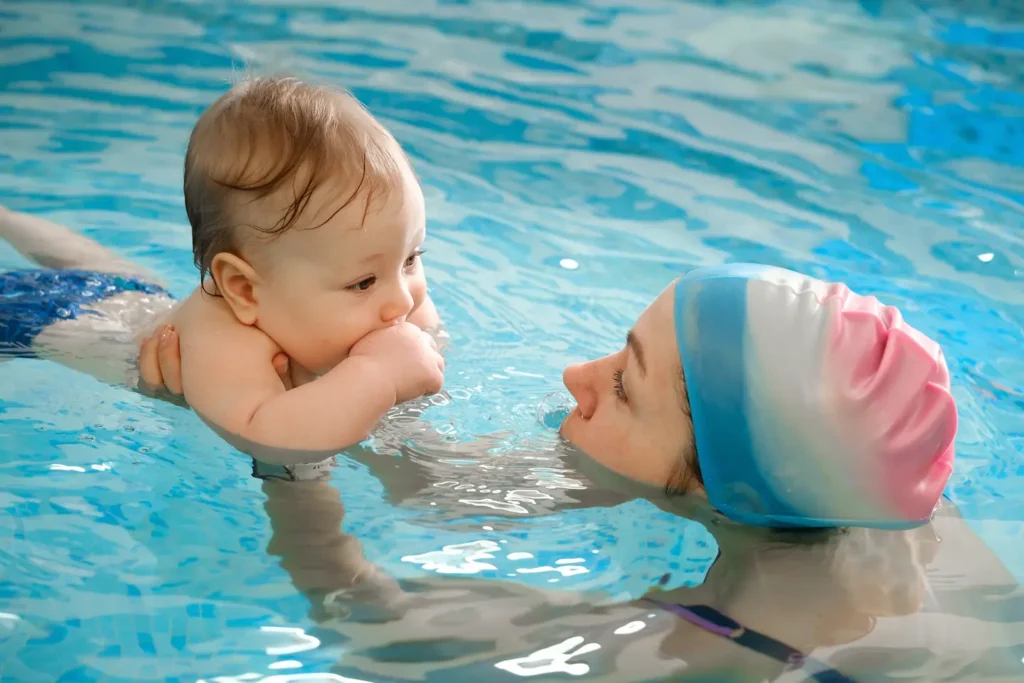
3. Consistency is Key
Toddlers thrive on routine, and consistency is critical when addressing their fear of water. Commit to attending every scheduled lesson, even if the first few sessions are met with resistance or tears. Repetition helps build familiarity and reinforces the idea that swimming is a regular, safe activity.
Start by celebrating small wins. If your child dips their toes in the water or sits calmly by the pool, acknowledge these milestones enthusiastically. You might say, “You were so brave dipping your feet in today—great job!” Gradually, these small victories will add up, helping your toddler gain confidence at their own pace.
Patience is essential during this process. Avoid forcing your child to progress faster than they’re ready, as this can create setbacks. Instead, focus on fostering a supportive and encouraging environment.
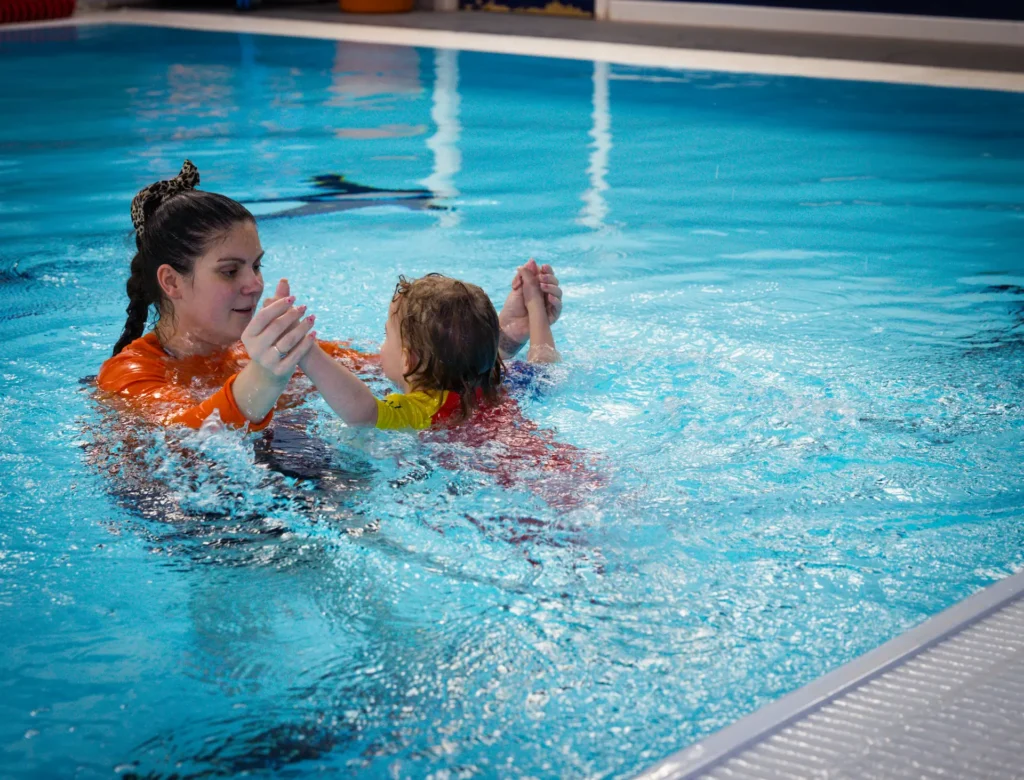
4. Make Lessons a Bonding Experience
Swimming lessons offer a unique opportunity to strengthen your bond with your child. Stay close during the session, maintaining eye contact and offering gentle reassurance like a pat on the back or a warm smile. These small gestures communicate safety and love, which are essential for helping your toddler feel secure in an unfamiliar environment.
When your child senses your calm and supportive presence, they’re more likely to view swimming as a positive experience. Over time, this shared activity becomes something they look forward to – a time for connection and fun with you by their side.
Your involvement also helps establish trust, reinforcing the idea that the water is a safe place as long as they’re with you. This trust is a powerful tool in overcoming their fear.
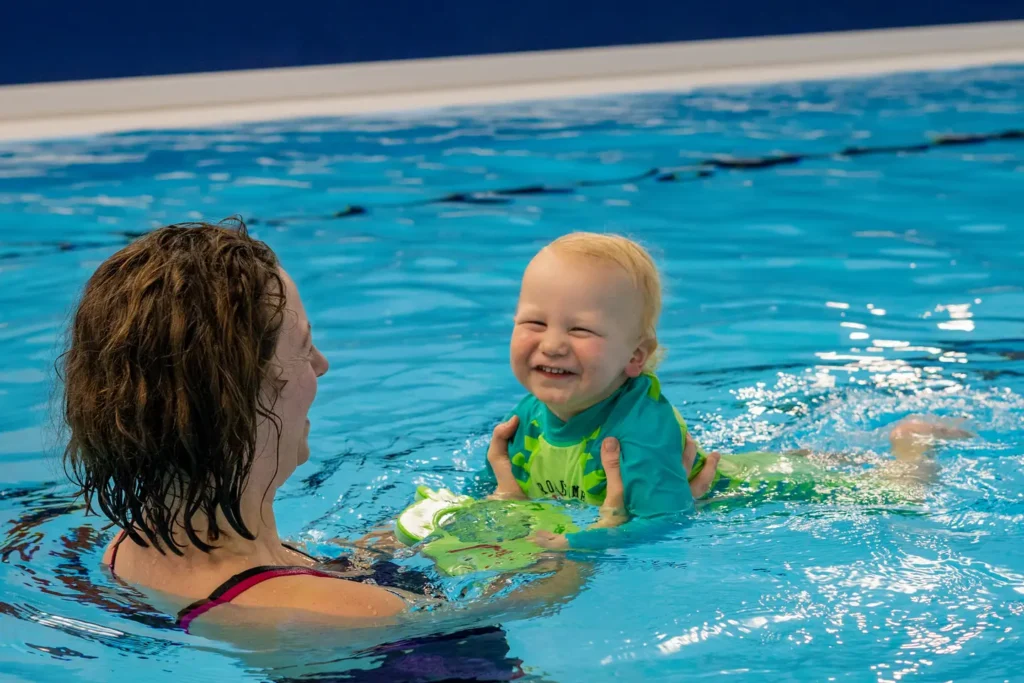
5. Be Their Biggest Cheerleader
Encouragement plays a vital role in helping your toddler overcome their fear of swimming. Celebrate every small achievement, whether it’s splashing water with their hands, floating with assistance, or even just standing near the pool. Positive reinforcement—through clapping, smiling, or verbal praise—boosts their confidence and helps them feel proud of their efforts.
Rewards can also be effective motivators. A favourite treat, toy, or extra playtime after a lesson reinforces their progress and makes the experience more enjoyable.
Avoid showing frustration if progress feels slow. Instead, remain patient and focus on the effort they’re putting in. For instance, if they hesitate to enter the water, acknowledge their bravery for even considering it. Remind them that learning takes time and that you’re proud of every step they take.
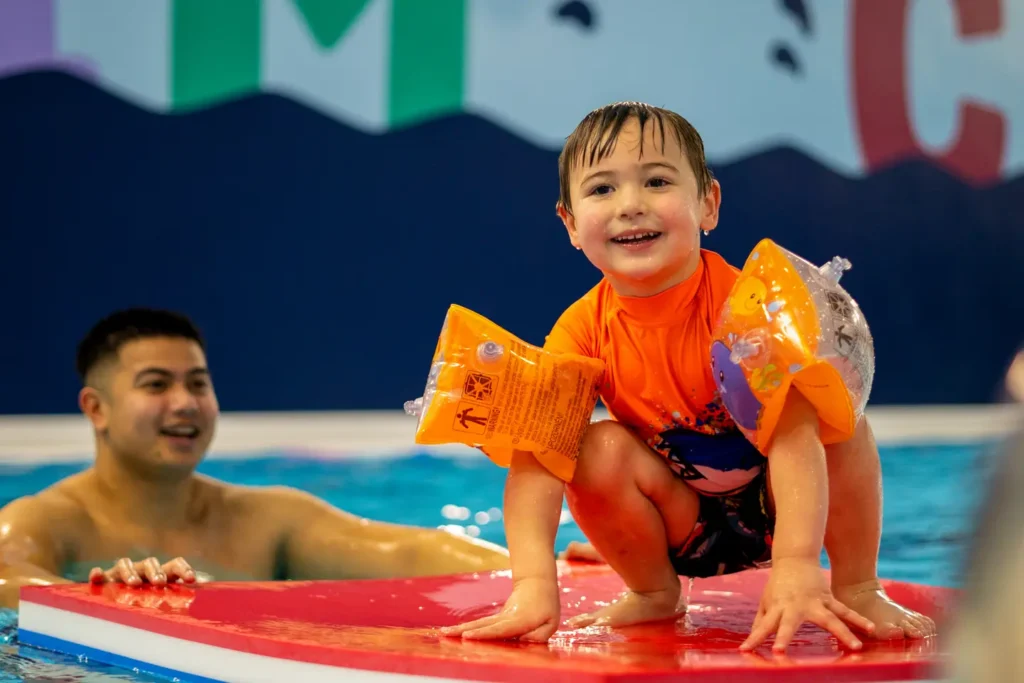
6. Trust The Experts
Building a relationship with your child’s swimming instructor can make a significant difference in helping your toddler overcome their fear of water. Qualified swimming teachers, like those at Swim Central, specialise in creating a safe, supportive environment where children feel at ease. Their expertise in working with toddlers allows them to adapt lessons to individual needs, ensuring your child’s comfort and progress.
If your toddler has specific fears, past negative experiences, or developmental needs, share these concerns with their swimming teacher. Open communication ensures the instructor can tailor the lesson to suit your child.
As we specialise in baby and toddler swimming lessons, we can create a nurturing environment where your child can learn at their own pace. Our teachers use engaging activities like songs, toys, and games to make the water feel fun and inviting. With small class sizes and personalised attention, your child will feel supported and encouraged every time they step into the pool.
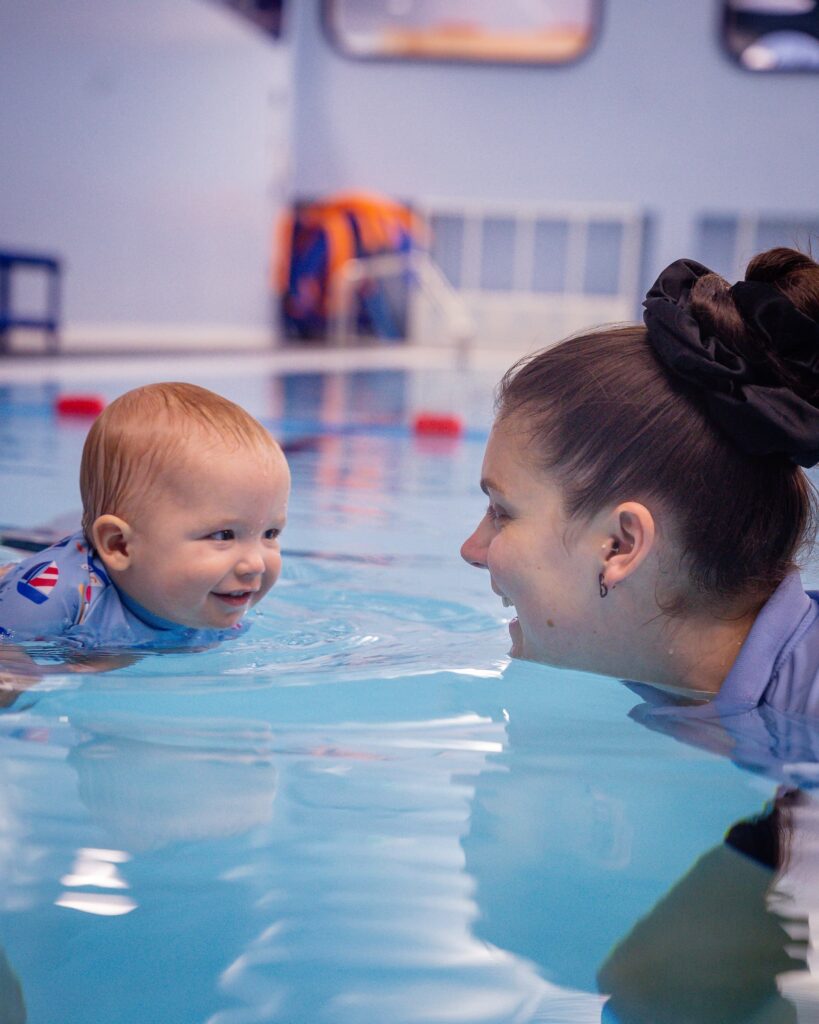
Conclusion
Helping your toddler overcome their fear of swimming requires patience, empathy, and consistency. By starting with small steps – like introducing water at home, attending lessons regularly, and offering lots of encouragement—you can turn their anxiety into excitement.
Every child’s journey is unique, but with the right support, your toddler can learn to love the water and enjoy all the benefits swimming has to offer. Remember, your encouragement is the foundation of their confidence, so celebrate their progress, however small, and watch them flourish.
Get in touch today or book into one of our baby swimming lessons to see how we can help your child learn to swim and overcome their fears!

